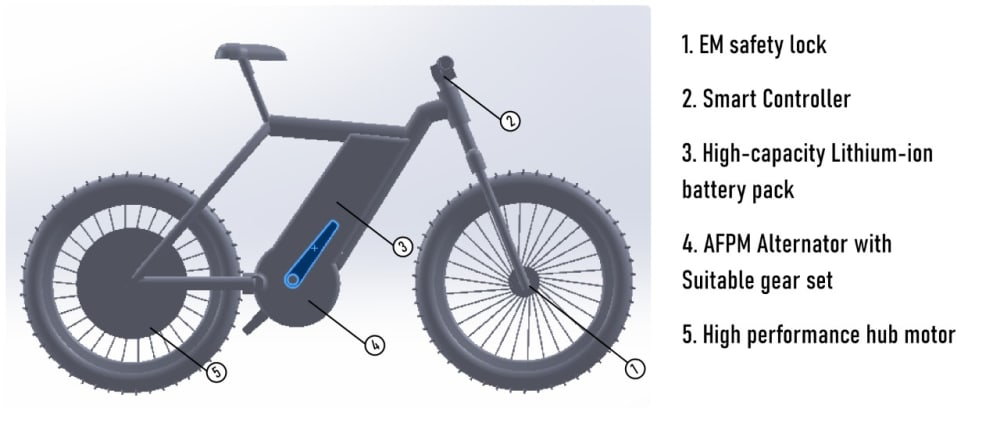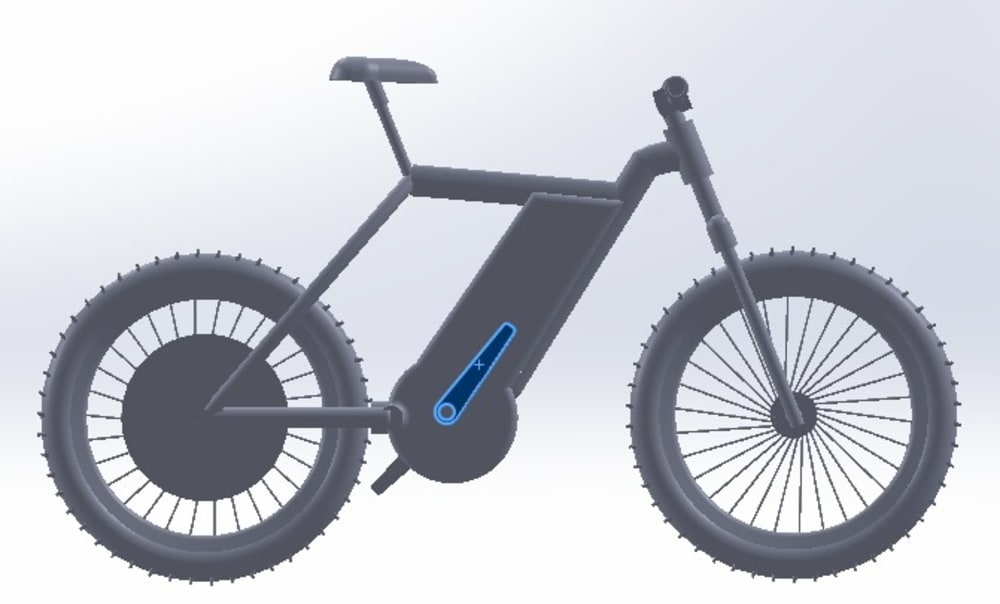Our product, the Smart Adaptive e-bike, will be a modern way of transport for daily commutes. It is under design and initial stage of simulation & prototyping. We are designing the bike to be similar to the other e-bikes in structure with some additional features includes power pedal assist and power to cost model (i.e. optional when using this bike in Public Bike Sharing (PBS) system).
The power pedal assist is capable of regenerating power as much as the driven motor drains through pedaling motion to make the battery power more sustainable. The main components involved in this bike are:
- 750W rear hub motor
- 52V 13Ah Li-ion battery
- AFPM alternator
- Control unit
- Electromagnetic brakes
Here, the 52v 13Ah battery can able to operate the rear hub motor at the max. speed of 500 rpm with the battery life to the max. of 3 hours continuously. We use Axial Flux Permanent Magnet (AFPM) alternator as power pedal assist system for power regeneration which fits at the bottom center of the bike, it has fixed to leg pedals at both ends of the shaft. The power pedal assist can able make power with the help of the rider with out any effort (Note: The AFPM generator doesn't draws any form of power from hub motor for power generation). It gradually improves the battery life by supporting the motor operation in addition. The AFPM alternator is customized according to the usage of various designed bike models and its motor specifications. A specially designed gear train setup was in-build with the AFPM to feel the rider more comfort while pedaling. The electromagnetic brakes are implemented in this product which locks the wheels and steering when the bike is not in use which act as a anti-theft system. It also includes with the smart control system which can we access through mobile application with security. It also engages with live GPS tracking for security reasons.
Due to COVID-19 pandemic most of the public transports were not in use or else with limited amount of passengers and it's drastically affect the daily commutes. Thus, if we implement this smart mobility as in public bike sharing system, it will be more beneficial without violating the COVID-19 etiquette. Here, the power to cost model plays a major role which deduct the cost from billing according to the rider using pedal to power the bike. It enhances more people to ride at minimal cost as cheaper than usual public transports.
The daily rise in fuel prices also affect the mid-range people vigorously. Here, our product helps them to get out of this problem and also even avoid large electricity bills because of power pedal assist system. They can charge the battery through power pedal even when the bike is not in use which saves additional electricity charges and improves their health by daily cycling.
It was completely eco-friendly and promotes the digital money, smart cities and smart mobilities through out the world.
Like this entry?
-
About the Entrant
- Name:Manickavasagam P
- Type of entry:teamTeam members:Manickavasagam P
Naveen B - Software used for this entry:Solid Works
- Patent status:none





